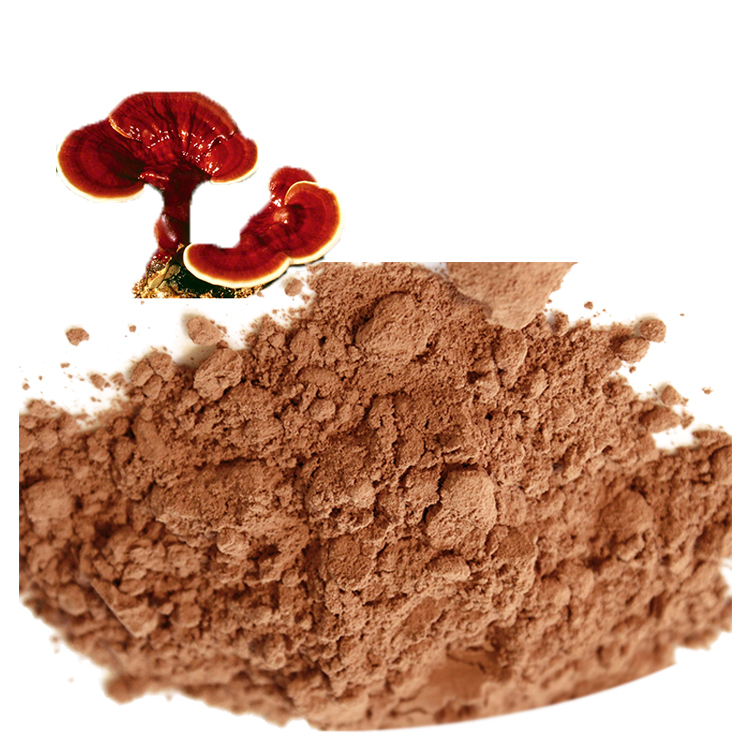Ganoderma lucidum, known as Lingzhi in China and Reishi in the West, has long been revered as a powerful medicinal mushroom in Asian traditional medicine. In recent decades, Ganoderma extract has captured worldwide interest for its potential role in cancer prevention and therapy. But what does current science say—can Ganoderma lucidum extract really fight cancer? This article explores the latest experimental, clinical, and mechanistic evidence, guiding readers beyond the hype and toward a balanced, research-based perspective.
1. What Makes Ganoderma Extract a Candidate for Cancer Research?
Ganoderma lucidum extract contains hundreds of bioactive molecules, including:
Polysaccharides (mainly beta-glucans)
Triterpenes (notably ganoderic acids)
Peptides, sterols, and phenolics
These compounds have been studied for their ability to modulate the immune system, reduce inflammation, and exert direct anti-tumor effects in preclinical models.
2. Preclinical Evidence: Laboratory and Animal Studies
A. Immune Modulation
Ganoderma extract has demonstrated the ability to boost immune surveillance by activating macrophages, natural killer (NK) cells, and cytotoxic T-cells—essential components in the body's defense against cancer cells.
Ganoderma lucidum extract polysaccharides are known to increase cytokine production (such as interferons and interleukins), enhancing anti-tumor immunity.
B. Direct Anti-Tumor Effects
Reishi mushroom extract triterpenes have been shown to induce apoptosis (programmed cell death) and inhibit proliferation in a variety of cancer cell lines, including breast, lung, liver, and colorectal cancers.
Animal studies demonstrate that Lingzhi extract can slow tumor growth, reduce metastasis, and even enhance the effectiveness of chemotherapy agents in some cases.
C. Anti-Angiogenesis and Anti-Metastasis
Ganoderma compounds inhibit the formation of new blood vessels (angiogenesis) that feed tumors and block molecular signals needed for cancer cell migration and invasion.
3. Human Clinical Trials: What Do They Show?
A. Adjunctive Therapy, Not a Standalone Cure
Ganoderma extract is not a replacement for conventional cancer therapies. However, several clinical trials suggest it can offer supportive benefits:
Improved immune parameters (NK cell activity, T-cell ratios) in cancer patients.
Better tolerance to chemotherapy and radiotherapy, including reduced fatigue, nausea, and infection rates.
Enhanced quality of life and, in some studies, slightly prolonged survival when used alongside standard care.
B. Notable Clinical Studies
A randomized controlled trial in patients with advanced lung cancer reported that those receiving Lingzhi extract showed improved immune profiles and fewer treatment-related side effects compared to placebo.
Meta-analyses, including those published in Cochrane Reviews, confirm some immunomodulatory and quality-of-life benefits, but no conclusive evidence of tumor regression or cure.
4. Mechanisms Behind Ganoderma’s Anti-Cancer Effects
A. Immune Enhancement
Ganoderma lucidum extract stimulates both innate and adaptive immune responses, making the body more efficient at detecting and destroying abnormal cells.
B. Inhibition of Cancer Cell Growth
Reishi mushroom extract triterpenes disrupt cell cycle progression, induce cancer cell apoptosis, and may inhibit key oncogenic pathways (such as PI3K/AKT and MAPK).
C. Anti-Inflammatory and Antioxidant Activity
Chronic inflammation and oxidative stress are recognized as risk factors for cancer. Ganoderma extract reduces inflammatory markers and oxidative DNA damage, contributing to a less favorable environment for tumor growth.
D. Anti-Angiogenic Action
Limiting the formation of new blood vessels helps restrict tumor nutrition and expansion.
5. Limitations and Cautions
A. Evidence Gaps
While preclinical and some clinical evidence is promising, large-scale, placebo-controlled clinical trials proving anti-tumor efficacy in humans are still lacking.
Most available studies use Ganoderma as an adjunct, not as monotherapy.
B. Product Variability
Not all products labeled as Ganoderma extract are equivalent—quality varies greatly depending on species authenticity, extraction method, and standardization.
C. Safety and Interactions
Ganoderma extract is generally safe and well-tolerated, with rare side effects such as digestive upset or mild allergic reactions.
Caution is required for patients on anticoagulants, immunosuppressants, or with mushroom allergies.
6. Practical Recommendations for Patients and Practitioners
Consultation: Always discuss with oncologists before adding Ganoderma lucidum extract or any supplement to a cancer treatment plan.
Product Selection: Choose standardized extracts with verified Ganoderma lucidum content, clear labeling, and third-party testing.
Adjunct Use: Consider Ganoderma extract for supporting immune function and managing side effects, but not as a substitute for medical therapies.
Monitor for Effects: Track immune parameters, quality of life, and possible side effects during use.
7. Frequently Asked Questions
Q: Can Ganoderma extract cure cancer?
A: No. There is no clinical evidence that it cures or directly eliminates cancer. It may support immune health and improve tolerance to standard therapies.
Q: Is it safe to use Ganoderma extract with chemotherapy?
A: Most studies suggest it is safe and may improve quality of life, but always consult with a healthcare professional for personalized advice.
Q: How long should it be taken?
A: Benefits are generally seen with daily use for at least 4–12 weeks, but long-term use should be supervised.
8. Conclusion
The question “Can Ganoderma extract really fight cancer?” cannot be answered with a simple yes or no. Scientific evidence—both preclinical and clinical—supports a role for Ganoderma extract, including Ganoderma lucidum extract, Lingzhi extract, and Reishi mushroom extract, in enhancing immune function, improving quality of life, and supporting conventional cancer therapies. However, it should never replace standard medical treatments. For patients and practitioners, the key is informed, cautious, and integrated use within a comprehensive care plan.
Read More:
Real Consumer Feedback on Ganoderma Extract: Honest Reviews & Global Insights
Thirty Days on Ganoderma Extract: What Changed in My Body?
Precautions and Contraindications When Taking Ganoderma Extracts: A Comprehensive Guide
Hangzhou Molai Biotech Co., Ltd has supply capacity 1200+ tons per year for mushroom powders and extracts, including the mushroom mycelium from modern technology of Deeply Liquid Fermentation and fruiting bodies from the grown real mushrooms to meet the different markets.
Hangzhou Molai Biotech Co., Ltd supplies the products both in Powders and Extracts for commercial using worldwidely, such as Cordyceps Sinensis, Cordyceps Militaris, Maitake Mushroom, Lion’s Mane Mushroom, Turkey Tail Mushroom, Reishi Mushroom, Chaga Mushroom etc.
We offer OEM and ODM services, could extract the products according to your special requirements, process the powders/extracts into Capsules, Tablets, Small Bags, Mushroom Bars, Mushroom Coffee etc.
Organic Lion's Mane Mushroom Extract
Organic Reishi Mushroom Extract
Organic Cordyceps Militaris Extract
Organic Turkey Tail Mushroom Extract
Organic Chaga Mushroom Extract
Organic Shiitake Mushroom Extract
Organic Maitake Mushroom Extract
Organic Tremella Mushroom Extract






